Do you have coriander in your kitchen cupboard?
What do you use it for? Salad dressing, marinades, soups, dressings….Coriander is a common spice found in most spice racks.
“It is one of those amazing spices that not only adds wonderful flavor to so many dishes but it also holds a significant spot in the home apothecary.”
It is one of those amazing spices that not only adds wonderful flavor to so many dishes but it also holds a significant spot in the home apothecary. I love when we can just add spices to what we are already eating and benefit from the amazing medicinal qualities of the kitchen herbs and spices.
Coriander has a synergistic effect in spice mixtures. Its’ lemony taste has the talent of synthesizing diverse flavors, when mixing it with other herbs you can’t really go wrong. It goes well with hot herbs like chili and mustard and also fits right in with sweet spices like cinnamon and cardamom.
It is well known as a pickling spice and it compliments mustard, chutney, sauerkraut and fermented vegetables. Abundant in spice mixtures from all over the world, coriander holds a prominent place in cuisine from many cultures. Once hoarded by Egyptian Kings and taken to the tomb by Egyptian Pharaoh’s, coriander now it holds a distinguished place in my squash soup and stew blends.
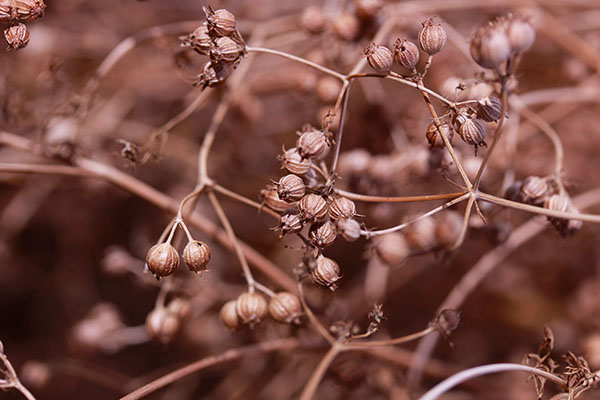
Going beyond flavor, it’s actually a little surprising how many things this little seed can do for you!
Common name: Coriander
Botanical name: Coriandrum sativum
Part used: Seed
Properties: Antibacterial, anti-inflammatory, antifungal, antioxidant, antispasmodic, carminative, diuretic, nervine
Coriander relieves intestinal cramps and spasms, helps with anxiety and nervous tension and can cool down an overheated digestive system. Its affinity for both the digestive and nervous system make it the peoples’ herb, tending to everyday common ailments.
Coriander is yet another herb that has a superb talent in helping with all things digestive
When we understand that most disease is rooted in digestive problems, then the attributes of this golden brown seed take on more significance. Fortifying digestion is the number one way to reduce inflammatory complaints in the body such as leaky gut syndrome, allergies and arthritis.
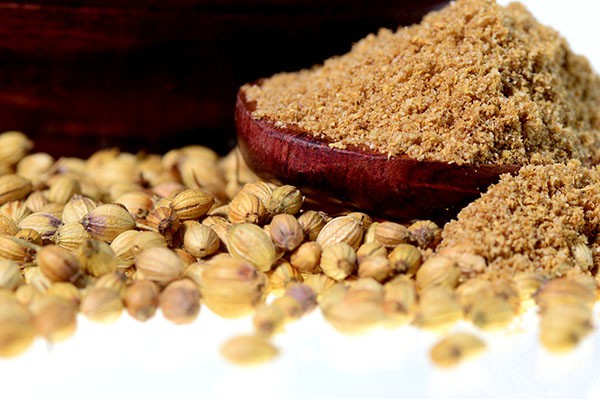
Insufficient digestion results in a chronic inflammatory process that robs nutrients from other parts of the body, eventually exhausting the nervous system. This inflammatory cascade gobbles up potassium, which depletes the nervous system and disrupts the body’s chemical balance.
Anxiety and nervousness follow hot on the heels of inflammation and nervous system depletion. Coriander has an anti-inflammatory effect throughout the body and is rich in the nutrients that are pilfered from healthy tissue during a course of inflammation. Coriander is a good source of iron, calcium potassium, zinc and magnesium and Vitamin C.
With such an affinity for the body and so many types of food, it is no wonder that coriander is called for in recipes almost as much as salt.
How about taking your coriander out of the spice tack and putting it on your table. Sprinkle it on rice and veggies, soups and salads….
Again, what is your favorite way to use this amazing healing spice?
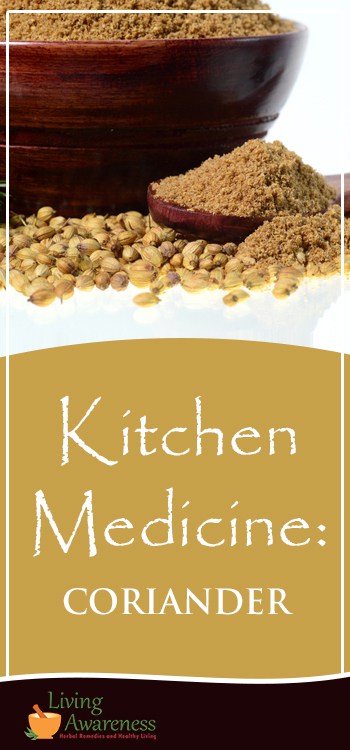

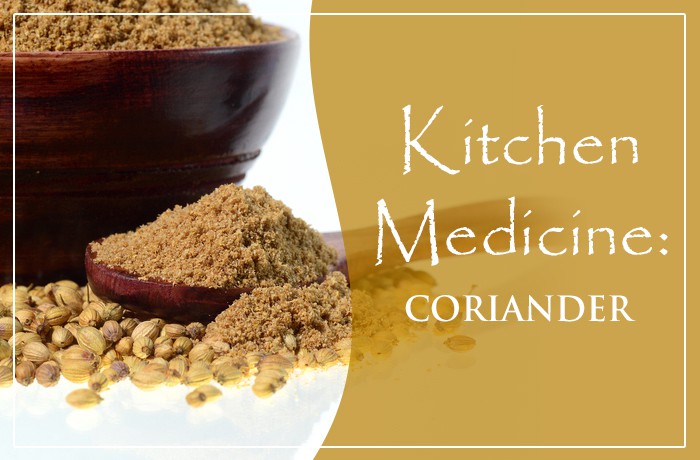
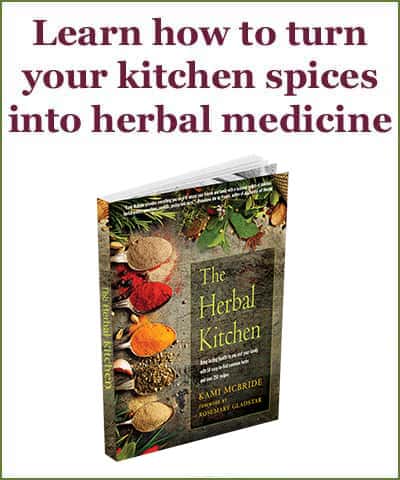


Maybe I missed it somewhere; is ground coriander as beneficial as the whole seed? Thank you.
Yes it is
I put it in everything savory. I love the notes it imbues to all the dishes. Glad to know it is so helpful!
I recently listened to an NPR segment on a study done on an ancient recipe for an herbal treatment for MRSA, Multiple Resistant Staphylococcus Aureus. The researchers followed the recipe exactly and applied the mixture to a culture dish of MRSA. In 24 hours, the herbal mix had completely wiped out the MRSA. The conclusion reached is that while bacteria and viruses modify to become resistant to the treatment of the time. After a time they modify away from the resistance and regain sensitivity to the old treatments. Therefore, we need to recycle the range of treatments available.
Thank you for the great information. I am going to take your advice and place it on the table and start using coriander for every day use and not just on the occasions when it is part of a recipe.
I learned a lot in this post, thank you Kami ( as well as everyone below who’s added their great suggestions).
I’m considering adding a grinder with coriander seeds to accompany my salt & pepper grinders so I can have it handy & be reminded to use it 🙂
PS I’m curious about the “ rose colored tea” that Freddie made from coriander- sounds like magic 🪄
Coriander makes yummy banana bread!
Oooh, I’m gonna try that! Thx for the tip❣️
Since reading the comments, I am going to grow cilantro in my herb garden to harvest the seeds.
Hiya! I am glad to learn more about corriander. Now I understand why I put corriander in just about every single savory dish. I have Multiple Sclerosis and two of the areas that I focus on are the digestive system and the nervous system. After 3.5 years since my diagnosis, I am seeing significant improvements in both of those systems. I have your book about incorporating herbs into your everyday diet and I am proof that it helps.
I grow cilantro and often have plants with seeds to save. Once I have enough seeds for the next crop, I dry my cilantro, seeds, flowers, leaves and sprinkle them in soups, salads… I believe they help remove heavy metals from our bodies.
Hi Kami
Thank you for sharing this information. I didn’t know coriander had so many benefits. We use it in our cooking, savoury dishes. My late mum and grandmother used it too. I learnt it from my mum. Now I understand the benefits and why certain spices are used.
I am so grateful to you for sharing this information and knowledge with us.
Thank you once again.
This sounds incredible!!
I grow cilantro, and when it produces seeds it is coriander. I eat those seeds while they are still green on the plant. 10 or 12 of them will expectorate your lungs overnight! It’s fantastic!
I also add my herbs to my coffee and I keep a small crockpot going with Chaga dandelion root Reishi Astralagus and other mushroom. I stopped adding a cinnamon stick as it lowered my blood sugar. Now I just add a sprinkling with cardomon to the beans to be ground and sometimes cacao nibs
Thanks Kami, I hadn’t used coriander much in my cooking but I will now. Love your teachings.
Coriander is the most used spice in my cooking, it can be used in sweet and savory dishes and goes with any food I can think of. I love its ability to pull together a spice blend
Not trying to hijack this thread, but wanted to express my gratitude for the great idea…
I love thé idea of sprinkling cardamom into the coffee beans before grinding, I’m going to try that tomorrow!
That’s such a good idea! I’d never thought of that, although I always felt a little guilty pleasure when I’d been grinding spices in my coffee grinder and then noticed their taste in my next batch of coffee (guilty only because I keep being told that I shouldn’t want such flavor combinations and I should devote a separate grinder to spices — I do this now and miss those sneaky flavor combinations). Thank you for sharing, I’m going to try it (on purpose now)!
Since I am having coffee…I am off to try some in my brew. I will be searching for more ways to use this spice. Thank you Kami!☕️
Yum! My newest way to use Corriander this summer is in Coleslaw. Some cracked and some whole. It just adds that pop to an old time fav. Thanks for bringing coriander to the table!
Right now I have a spiced apple cordial steeping that has coriander, cinnamon, ginger, nutmeg, allspice, and cloves in it.
Hi Kami – Thanks for the info! I didn’t know corriander is so beneficial to digestion and the nervous system and had all those great properties. Very interesting information! And having it on the table at meal times is a great idea. I’m also going to start adding it to my homemade salad dressings and experimenting with cooked dishes too. It’s delicious in apple crisps. Yum!